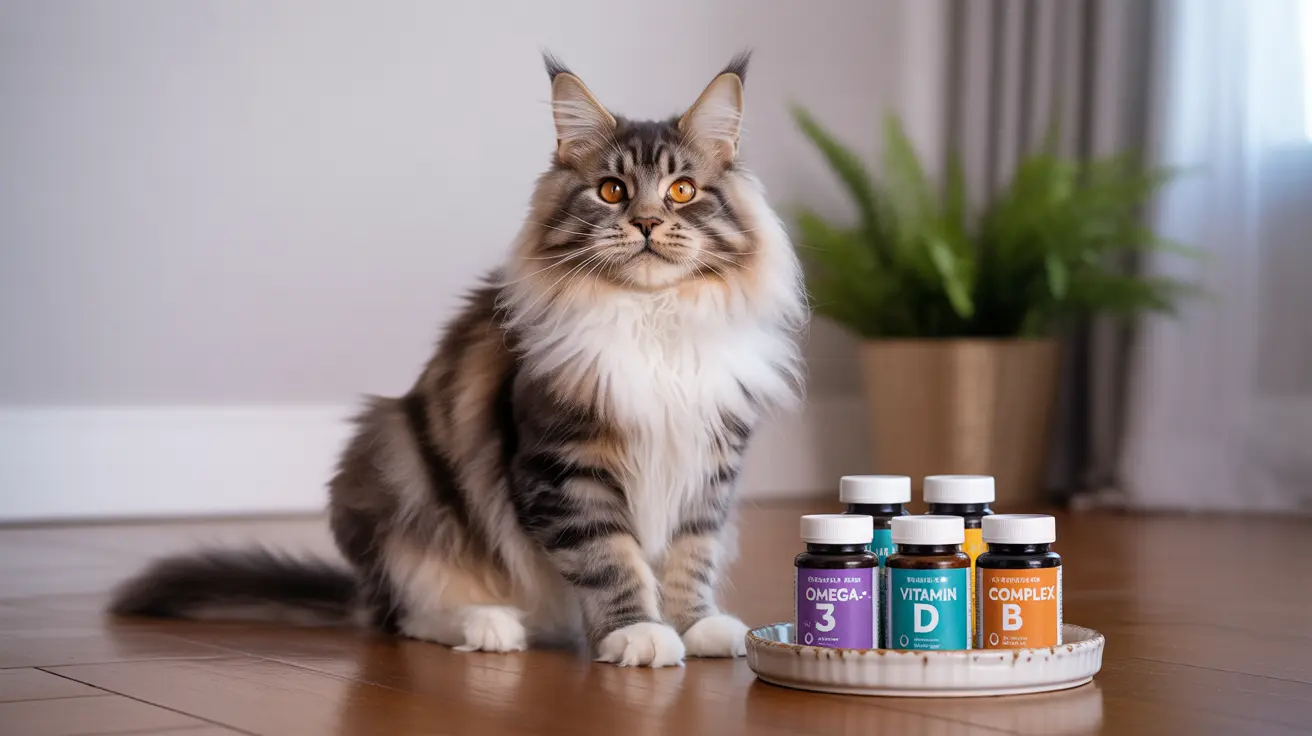When it comes to keeping your feline friend healthy and happy, understanding the role of vitamins for cats is crucial. While most cats get their necessary nutrients from a balanced commercial diet, some may need additional supplementation to maintain optimal health. This comprehensive guide will help you understand everything you need to know about vitamins and supplements for your cat.
Whether you have a senior cat with special needs or a young kitty with specific health concerns, knowing about essential vitamins can make a significant difference in their wellbeing. Let's explore the vital nutrients your cat needs and when supplementation might be necessary.
Understanding Essential Vitamins for Cats
Cats require specific vitamins that they cannot produce on their own. Unlike humans or dogs, cats have unique nutritional needs that must be met through their diet or supplements. Some of the most crucial vitamins include:
Fat-Soluble Vitamins
Vitamins A, D, E, and K play vital roles in your cat's health. Vitamin A supports vision and immune function, while vitamin D helps maintain strong bones. Vitamin E acts as an antioxidant, and vitamin K is essential for blood clotting.
Water-Soluble Vitamins
B-complex vitamins are crucial for energy metabolism and overall health. These include thiamine, riboflavin, and B12, which support various bodily functions from nerve health to red blood cell production.
The Role of Taurine in Feline Health
Taurine is perhaps the most critical amino acid for cats. Unlike other animals, cats cannot produce sufficient taurine on their own. This essential nutrient supports:
- Heart muscle function
- Vision and eye health
- Reproductive health
- Immune system function
- Proper digestion
When Vitamin Supplementation Is Necessary
While a balanced diet typically provides adequate nutrition, certain situations may require vitamin supplementation:
- Senior cats with decreased nutrient absorption
- Cats with chronic health conditions
- Those on homemade or restricted diets
- Cats recovering from illness or surgery
- Pregnant or nursing cats
Choosing the Right Supplements
Before starting any supplement regimen, consider these important factors:
- Consult with your veterinarian
- Choose quality products from reputable manufacturers
- Avoid human supplements
- Follow dosage instructions carefully
- Monitor your cat for any adverse reactions
Safety Considerations and Potential Risks
While vitamins are essential, over-supplementation can be dangerous. Fat-soluble vitamins can accumulate in the body and cause toxicity. Always remember:
- Never supplement without veterinary guidance
- Watch for signs of adverse reactions
- Keep supplements stored safely away from pets
- Don't combine multiple supplements without professional advice
Frequently Asked Questions
What essential vitamins should I include in my cat's diet to support their overall health?
A balanced cat diet should include vitamins A, D, E, K, and B-complex vitamins. Most commercial cat foods are fortified with these essential nutrients. However, specific supplements may be recommended by your veterinarian based on your cat's individual needs.
When should I consider giving vitamin supplements to my cat, and can over-supplementation be harmful?
Consider supplements if your cat has specific health issues, is elderly, or is on a restricted diet. Over-supplementation can be harmful, especially with fat-soluble vitamins, potentially leading to toxicity. Always consult your veterinarian before starting any supplement routine.
How do omega-3 fatty acids and glucosamine supplements benefit cats with joint or skin issues?
Omega-3 fatty acids help reduce inflammation and improve skin and coat health, while glucosamine supports joint health and mobility. These supplements are particularly beneficial for older cats or those with arthritis or skin conditions.
Why is taurine an important supplement for cats, and what health problems can result from its deficiency?
Taurine is essential for heart function, vision, and reproduction in cats. Deficiency can lead to serious health issues including heart disease (dilated cardiomyopathy), vision problems, and reproductive failures. Cats cannot produce adequate taurine naturally and must obtain it through diet or supplements.
Can probiotics and cranberry extract supplements help with my cat's digestive and urinary tract health?
Yes, probiotics can improve digestive health by promoting beneficial gut bacteria, while cranberry extract may help prevent urinary tract infections by preventing bacteria from adhering to the bladder wall. However, these supplements should be used under veterinary guidance.
Conclusion
Understanding the role of vitamins for cats is crucial for maintaining your pet's health. While most cats get adequate nutrition from their regular diet, some may benefit from targeted supplementation. Always work with your veterinarian to determine the best approach for your cat's specific needs, and remember that supplements should complement, not replace, a balanced diet.






